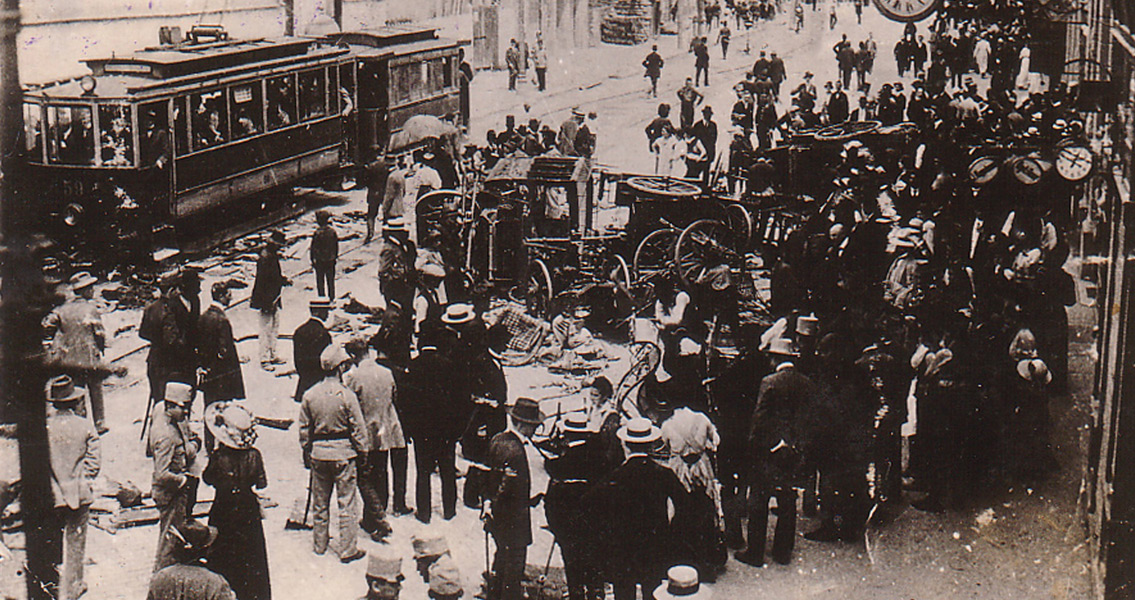<![CDATA[One of the most significant assassinations in history took place on 28th June, 1914, when Austrian Archduke Franz Ferdinand and his wife were gunned down in Sarajevo, Bosnia. The killings, by a Serbian nationalist, are widely considered the spark that ignited the powder keg of Europe into the First World War. Franz Ferdinand was the nephew of Austro-Hungarian Emperor Franz Joseph, and heir to the throne. His death was a massive blow to the Habsburg Dynasty, inevitably leading to retaliation which pulled the great powers of Europe into a devastating conflict. The Archduke had accepted an invitation from the governor of the then Austrian provinces of Bosnia and Herzegovina to carry out a state visit; observing military maneuvers in the territory. With his wedding anniversary approaching, he elected to bring his wife, Sophie, along for the visit, marking one of the rare occasions in their fourteen year marriage the two would appear together in public. At 9:28 am on the 28th, the royal couple arrived in Sarajevo by train. After alighting, they transferred to an open top motorcade for a parade through the city. Six Serb nationalists, all members of a group known as the Black Hand, had lined the route of the procession under instructions to kill the heir to the Habsburg Dynasty. The first would be assassin lost his nerve and fled the scene, but the next in line along the route, Nedeljko Gabrinovic, did not. When the motorcade approached, he hurled a grenade with a ten-second delayed fuse at the royal car. The grenade bounced off the vehicle, and the driver, sensing the danger, swiftly accelerated. The grenade detonated, but under one of the other cars in the procession, seriously injuring some of those in the Archduke's entourage but allowing him and his wife to escape unscathed. Gabrinovic attempted to kill himself with cyanide before he could be captured but the pill failed, and he was apprehended by authorities. Sensing the danger, the procession organisers cancelled the parade, diverting the Archduke's car and others back to the train station along a different route to the one initially planned. A break down in communication meant the driver of Ferdinand's car was not informed of the change. Mistakenly driving down Franz Josef Street, the driver was forced to stop the car and turn it around. The vehicle came to a halt close to Gavrilo Princip, another Black Hand member, who thought the assassination attempt had been ruined and was making his way home. Taking advantage of the opportunity luck had presented to him, Princip rushed the car, firing two shots: one at the Archduke, one at Sophie. Ferdinand was hit in the neck, his wife in the abdomen. By 11:30 am, less than an hour after the attack, the heir to Austrian throne had bled to death. The visit to Austria-Hungary had been widely considered a risky one. Nationalist sentiment in the Balkan states, particularly among Serbians, was inflamed in the wake of the annexation to Austria in 1908. Ferdinand had since made himself a particularly unpopular figure by suggesting that the whole Balkan region should be joined into a 'United States of Greater Austria'. On top of that, 28th June was in fact Serb National Day, making the Archduke's visit seem a deliberate insult. Princip, a nineteen year old Serb student, had joined the Black Hand while living in Serbia. The nationalist organisation favoured a union between Serbia and Bosnia-Herzegovina, free from the shadow of the Austro-Hungarian Empire. Following the killing of Franz-Ferdinand, Princip was ruthlessly beaten and arrested by local police. He was sentenced to twenty years imprison, but died just four years later from tuberculosis. ]]>
Archduke Franz Ferdinand Assassinated
